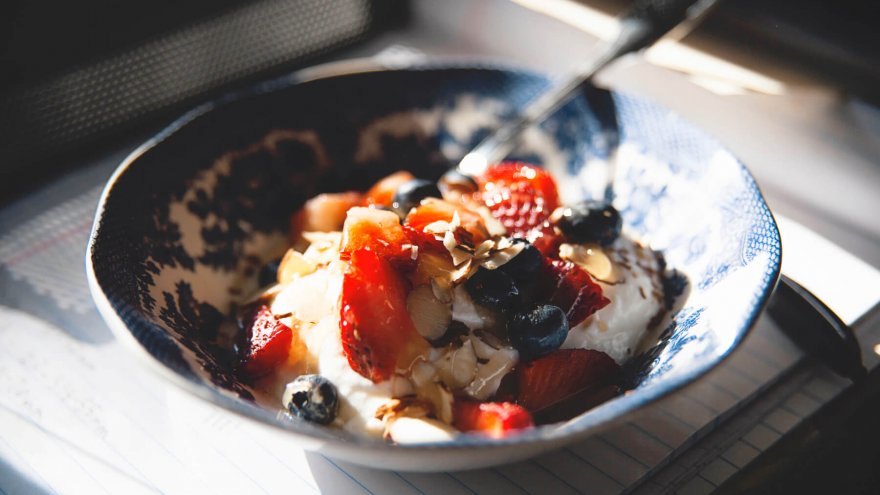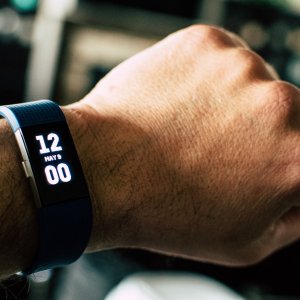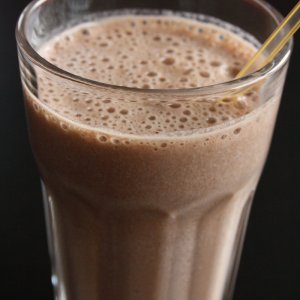What to Eat and Drink for Successful Post-Workout Recovery


If you are like me, you have given a lot of thought to what to eat and drink before a run or a workout. Making sure you are well-hydrated and appropriately fueled can make the difference between a good run or workout and a bad one. Unfortunately, I am at the age/stage at which my pre-workout fuel usually also includes two NSAIDs and a cup of coffee.
But what about after your workout or run? Of course, we are all aware that chocolate milk is advertised as a good post-workout recovery drink but why? Is that just a marketing effort by the U.S. dairy industry? And what else should you eat and drink to help your body recover so that you are better prepared for your next workout/run?
What nutrients are depleted after exercise?
Because your body processes nutrients in different ways and at different times, it is important to know when to eat and drink what to keep your body performing at the highest level possible for your fitness goals. What you eat and drink is possibly more important after the workout than even before and during. Being smart about what you consume post-workout can be extremely beneficial to your body’s recovery process.
During a workout or run, your body metabolizes fat, carbohydrates and proteins into energy. Post-workout recovery should aim to replenish two of those depleted macronutrients—carbohydrates and proteins—although adding a little fat won’t hurt. In addition to refilling energy stores, good post-workout recovery also will increase muscle size or quality and repair any cellular damage to the muscles caused by the workout. Eating and drinking the appropriate things following a workout also has the added benefits of improving the body’s ability to metabolize body fat, increasing bone mass, decreasing muscle soreness and boosting the body’s immune system.

So, what should you eat?
It is important to eat both carbohydrates and proteins following a workout and in a ratio of about 3 carbs to 1 protein. And although fat might slow down how quickly the beneficial nutrients of your post-workout foods are absorbed, a little healthy fat won’t hurt.
There are numerous products marketed for post-exercise recovery…drinks, bars, powders, etc. But sometimes the most simple foods and drinks are the most effective and easiest to find and keep in your pantry.
Some good carbohydrate-rich choices include:
- Potatoes—regular and sweet
- Rice
- Rice cakes
- Quinoa
- Pasta
- Oatmeal
- Dark, leafy green vegetables such as spinach and kale
- Fruits such as berries and bananas
Good choices for proteins include:
- Eggs
- Nuts
- Yogurt
- Tuna
- Cottage cheese
- Salmon
- Chicken
Good fats include:
- Nuts and nut butters
- Avocado
- Trail mix with dried fruit and nuts

When should you eat it?
The International Society of Sports and Nutrition recommends eating a recovery meal/snack immediately and up to two hours after exercise for optimal recovery. A meal—even a small one—of protein- and carbohydrate-rich whole foods in the 3:1 ratio is ideal.
Obviously, some of the foods on the lists above lend themselves better to those days when you are heading directly home after a workout. Sometimes eating a full meal is not doable following a workout or run and some people aren’t that hungry immediately after exercise.
If you have to be on the go and the portability of your post-exercise recovery food is important, you may want to opt instead for a premade recovery product such as a bar or drink.
Do recovery drinks work as well?
Some believe that recovery drinks work just as well or even better than food following a workout. Some, who can’t tolerate eating immediately after exercising, find that they can stomach a recovery drink. And because the proteins and carbs are in liquid form, they are more quickly digested and absorbed by the body.
A study, published way back in 2006, before recovery drinks exploded on the market, found that boosting recovery with a sports drink had “a significant short-term subjective positive effect” as compared to a placebo. The study, “Positive short-term subjective effect of sports drink supplementation during recovery,” was published in the Journal of Sports Medicine and Physical Fitness.
Look for drinks with 10-20 grams of protein and 15-20 grams of carbs in 8 ounces. The one I drink is actually a meal replacement drink with 10 grams of protein and 25 grams of carbs and is relatively inexpensive and available at my local warehouse store by the case.

Chocolate milk: hype or help?
Even more readily available, at any grocery or convenience store, is chocolate milk, which has been touted as the perfect recovery drink by many professional athletes in television commercials and print ads.
But is that just a marketing effort or is there science to back up that claim?
An analysis of 12 studies involving chocolate milk found that it provides either “similar or superior results when compared to placebo or other recovery drinks.” The analysis authors noted that chocolate milk provides proteins, carbohydrates, fats, water and electrolytes, all of which are critical to post-exercise recovery. The study, titled “Chocolate milk for recovery from exercise: a systematic review and meta-analysis of controlled clinical trials,” was published in the June 2018 European Journal of Clinical Nutrition.
Another study, “Chocolate milk: a post-exercise recovery beverage for endurance sports,” published in the journal Medicine and Sport Science in 2012, noted that chocolate milk is ideal as an exercise recovery drink and that it may reduce muscle damage.
Chocolate milk has some more practical benefits. It is available in both whole and low-fat versions for those who may be monitoring their fat intake. It is readily available and more economical than many other pre-made recovery drinks. And it is available in single-serve bottles, half-gallon and gallon cartons and jugs so you can keep a large jug in the fridge at home and take the single-serve bottles on the go. Chocolate milk even is available in a shelf-stable option for those who don’t have a lot of available fridge space.
No matter what option you choose for your recovery, make sure it is well-stocked, easily prepared or accessible and most of all, palatable.
Sources
- , International society of sports nutrition position stand: nutrient timing., website
- , Chocolate milk: a post-exercise recovery beverage for endurance sports, website
- , Positive short-term subjective effect of sports drink supplementation during recovery, website
- , Post-Workout Nutrition: What to Eat After a Workout, website
- , What To Eat Before, During and After Exercise, website
- , All About Post-Workout Nutrition, website
Latest Articles
 Is Running on a Treadmill Easier Than Running Outside?Runners have their own preferences, whether it is treadmill running, running outside on the road, or exploring trails. So...
Is Running on a Treadmill Easier Than Running Outside?Runners have their own preferences, whether it is treadmill running, running outside on the road, or exploring trails. So... Is It OK to Use Trail Running Shoes on the Road?While trail running shoes can be used on roads, especially in situations where a runner encounters mixed terrains or pref...
Is It OK to Use Trail Running Shoes on the Road?While trail running shoes can be used on roads, especially in situations where a runner encounters mixed terrains or pref... How to Fix Sore Quads After Running?Rest, ice, gentle stretching, and over-the-counter pain relievers can help soothe sore quads after running. Also, ensure ...
How to Fix Sore Quads After Running?Rest, ice, gentle stretching, and over-the-counter pain relievers can help soothe sore quads after running. Also, ensure ... 10 Fruits With The Most Electrolytes to Replace Sports DrinksThese fruits are high in electrolytes such as potassium, magnesium, and calcium, essential for hydration, muscle function...
10 Fruits With The Most Electrolytes to Replace Sports DrinksThese fruits are high in electrolytes such as potassium, magnesium, and calcium, essential for hydration, muscle function...

